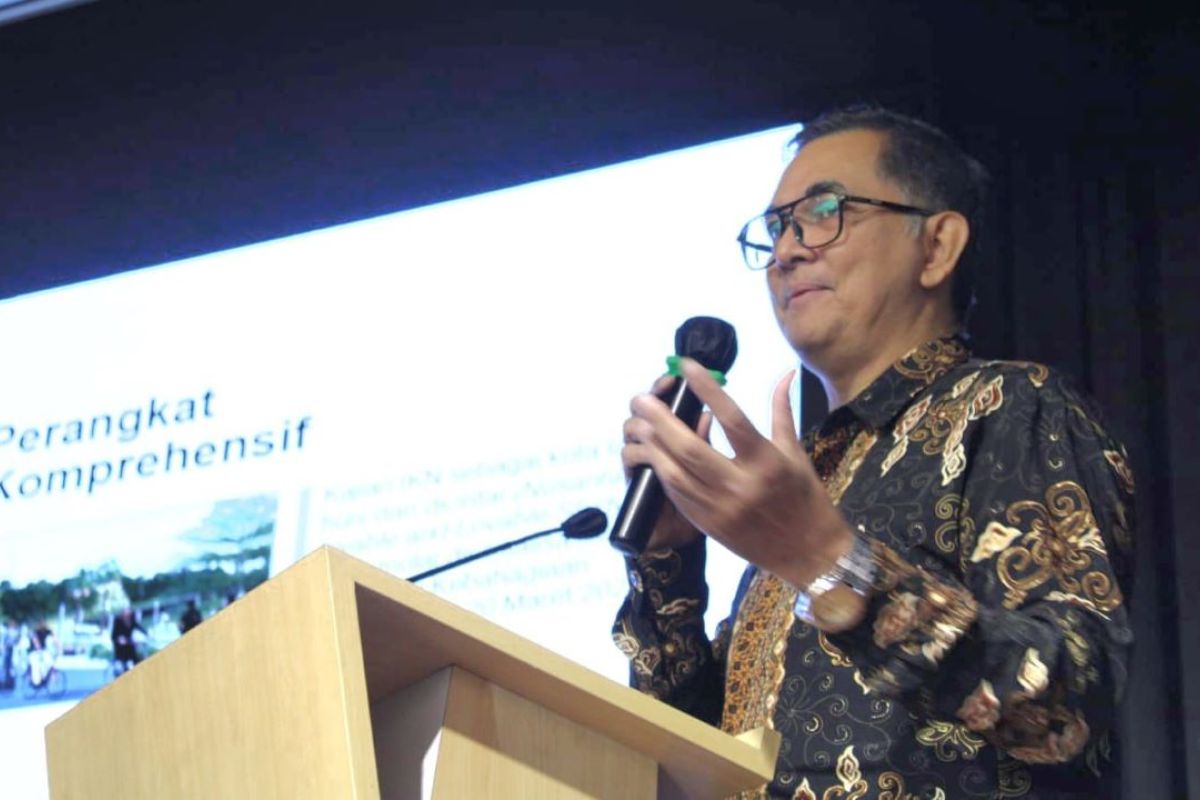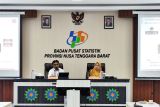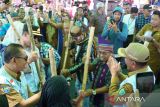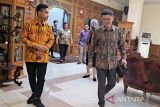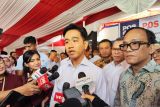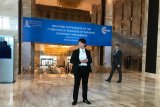Jakarta (ANTARA) -
"The IKN Nusantara is designed according to the principles of the green economy," Spokesperson for the OIKN Troy Pantouw remarked in Jakarta on Sunday.
He noted that the green economy principles include harmony with nature. In this context, the Indonesian government envisions over 65 percent of Nusantara's development site as green spaces, he said.
Pantouw then elaborated on the second principle, low carbon emissions, saying that the future capital city is expected to prioritize the use of new and renewable sources to meet its needs for energy.
He went on to speak of circularity and resilience, as the third principle, noting that over 10 percent of lands in IKN Nusantara have been designated for food-producing activities. The official further highlighted that the government is developing Nusantara as a smart and green city whose development works are targeted to conclude in 2045.
He also underlined that the OIKN had devised the Nusantara Net Zero Strategy 2045 and the Nusantara Voluntary Local Review (VLR)
"Nusantara is the first capital city in the world that conveyed its VLR to the United Nations," he emphasized.
He then spoke of the OIKN having formulated strategies to ensure that Nusantara development works do not trigger natural disasters and conflicts with the local fauna ecosystem.
"The OIKN has also devised fauna corridors, comprising natural corridors and man-made ones, in an effort to minimize the potential of conflicts between humans and animals," he said.
Baca juga: Mei mendatang, Stanford University mulai bangun kampus di IKN
Baca juga: Upaya TNI jaga kawasan laut IKN
In a bid to maintain environmental balance, the OIKN has been striving to increase the number of green open spaces at Nusantara's Government Core Area.
"All these efforts serve as proof of the OIKN's commitment to actualizing balance between construction works and environmental preservation. We aim to ensure that IKN stands as a sustainable and eco-friendly capital city," he concluded.


